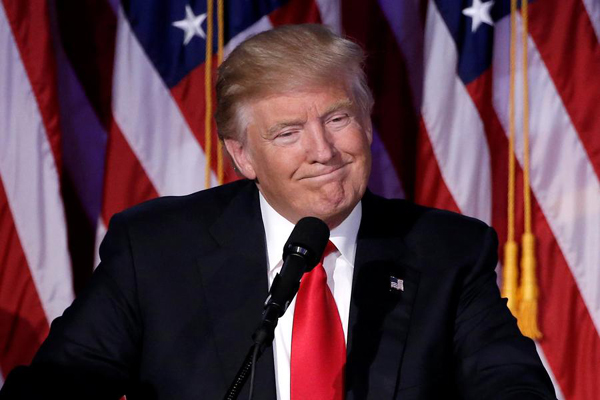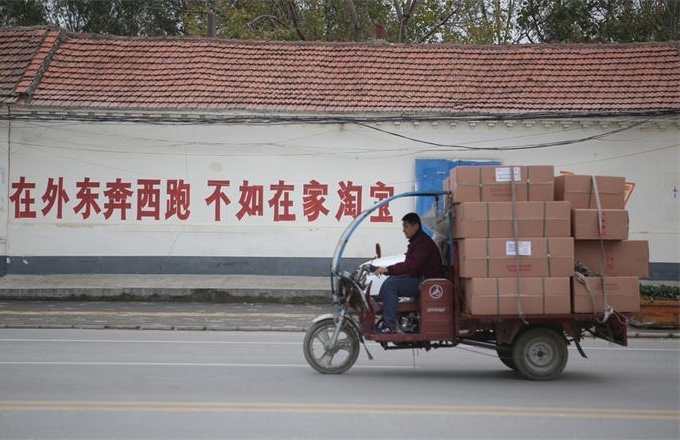EU coming to terms with Trump win, seeks early meeting
By Fu Jing (China Daily) Updated: 2016-11-15 07:39
 |
|
US President-elect Donald Trump speaks at election night rally in Manhattan, New York, US, November 9, 2016. [Photo/Agencies] |
The European Union was eager to set up an early meeting with the new United States president, betting it would be Hillary Clinton. It didn't turn out that way. Still, European Council President Donald Tusk and European Commission President Jean-Claude Juncker sent US president-elect Donald Trump a joint letter of congratulations, inviting him to visit Europe for a summit as soon as possible.
Most likely, the EU's letter was the first invitation the US businessman-turned-president has received from global leaders. Whether or not Trump accepts the invitation, he must fly to Italy in May and Germany in July next year to attend the G7 and G20 meetings, where EU leaders will get a better chance to seek a Brussels-Washington meeting.
In March 2017, the EU will hold an event in Rome to mark the 60th anniversary of the Rome Treaty, a founding pillar of the modern Europe project. And against the backdrop of Brexit, Brussels may invite Trump to the event, in order to gauge the level of his confidence in the future of European integration.
Taking these developments into consideration, the cross-Atlantic partnership may top Trump's foreign policy agenda after he enters the White House on Jan 20. It seems Brussels has taken the initiative to embrace the Trump era while its bureaucrats are busy adjusting themselves to the new political reality.
European commissioners, and ministers of trade, foreign affairs and defense have already included US president-elect Trump in their routine discussions. Brussels has many reasons to show such urgency. The EU wants to know more about him, as Tusk openly expressed concerns at a meeting on Wednesday about the uncertainties the US election result will bring about for the EU.
Many in Europe have the same feeling, even as The Economist pondered why American voters turned their backs on Clinton.
These are part of the complicated realities in Europe Trump has to take into consideration when devising his EU policy. While Washington and Brussels prepare the stage for such a meeting, the urgent task for Trump and his team will be to polish his image, because Europeans want actions, not words, especially those that can help the EU solve its problems.
In his message on Wednesday, Tusk stressed that the cross-Atlantic partnership has been there for centuries, because Europeans and Americans have always worked together for common peace and prosperity and European integration.
Coincidentally, Nov 11 was the 98th anniversary of the end of World War I (1914-18), with Europeans once vowing to establish permanent peace in the world, and Nov 13, marked the first anniversary of the bloody terrorist attacks in Paris.
Apart from seeking the US' continuous support in its eastern and southern regions to ensure security, the EU also needs to cooperate with Washington to continue its fight against terrorism. But these urgent challenges need to be discussed in a broader context. They need to take stock of US President Barack Obama's legacy and examine how the EU has contributed to it.
Despite its achievements, the Obama administration, together with the EU, must take responsibility for the "Arab Spring", as well as the worsening situation in the Middle East. After all, misconstrued US foreign policy is partly the reason for the terrorist attacks and refugee crisis in Europe.
So when the EU approaches the Trump administration for early talks, it should put security and safety high on the priority list even though economic and trade agendas are essential.
It is worth watching to see whether Trump, compared with Obama, will deal differently with the EU, particularly because the EU and the US both are very important global stakeholders and must contribute to international relations and common global prosperity.
The author is deputy chief of China Daily European Bureau. fujing@chinadaily.com.cn












